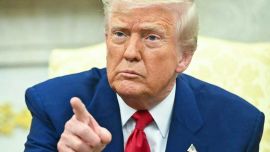Argentina is preparing to meet a potential second wave of coronavirus cases, but is “much more ahead of the game,” a Health Ministry official said yesterday.
Health Quality Secretary Arnaldo Medina said the government had ramped up preparations in recent weeks, arguing they would help reduce the number of patients entering intensive therapy wards and thus also lower the death rate.
"The disease as such hasn’t changed much [since the start of the pandemic]. There are mutations of the virus but the illness remains the same. What has changed is the approach because there is more evidence regarding treatment and the importance of early action," said Medina.
The national official told a local radio station that for the first wave of Covid-19 in the first half of 2020, Argentina "had concentrated on intensive therapy, expanding the number of beds and ensuring that nobody remained without the possibility of an artificial respirator if needed. But for the second wave expected in our country we’re looking to much earlier clinical and medical action in the emergency wards and primary attention."
The official from the portfolio headed by Health Minister Ginés González García further underlined that the change in sanitary approach was based on "having patients enter the intensive therapy ward in the best possible condition early on or directly not having them enter at all."
Medical treatments as oxygen therapy, applying the plasma of convalescent patients and hyper-immune equine serum could all contribute towards that end, he added.
The official’s comments were a rare insight into preparations for a predicted rise in infections in the coming months. In recent weeks, much of the public’s – and the media’s – attention has been focused on supply of vaccines against coronavirus.
Medina did refer to the supply of vaccines against coronavirus, pointing out the government is continuing to “negotiate with labs to increase the number of vaccines.”
“We have ensured the supply for this year so what interests us most is having them as soon as possible to accelerate the vaccination campaign," he added. "We’re seeking the fastest possible supply of vaccines, [and] we were one of the first countries in the world to start vaccination."
62 million doses
Fending off criticism over the lack of vaccines to date, Health Minister Ginés González García revealed Wednesday that Argentina has signed contracts for the provision of some 62 million doses of Covid-19 vaccines.
"The number we have today is quite clear: we have 30 million of the Russian vaccine [Sputnik V], 22.4 million of AstraZeneca, plus a negotiation for another 1.2 million of that vaccine and nine million from the Covax mechanism," González García said during a presentation before the Health Commission of the lower house Chamber of Deputies.
Covax, a scheme put together by the World Health Organisation to aid nations’ efforts to acquire vaccines, said Monday that Argentina would receive 2.2 million doses of the AstraZeneca-Oxford University shot in the first half of the year.
According to González García, total supplies would be enough to immunise Argentina's entire adult population. "If we take out the 15 million Argentines who are under 18 years of age, we almost have the population covered," he said.
Although he did not provide details about the delivery schedule for the vaccination campaign, the minister stated that Argentina has "assured the stock [of vaccines] until July." He added that provincial governments were welcome to negotiate directly with suppliers, though he doubted their chances of securing a better deal than the national administration.
To date
Argentina has so far received 820,000 doses of the Sputnik V vaccine, produced by the Russian laboratory Gamaleya. The country began its voluntary vaccination campaign on December 29, beginning with healthcare workers and those aged over 70. So far, the Russian vaccine is the only one available in the country.
González García said the Alberto Fernández administration had sent a request to Moscow asking to extend its original contract of 20 million doses to 30 million. He also commented on reports that the government is seeking to produce the vaccine in Argentina.
"We know that the Gamaleya institute is looking for a production plant in Argentina for its vaccine," said the minister. He refused to elaborate further, saying it was an ongoing "negotiation between private parties."
"We have negotiated with several suppliers and we are certain that we have a supply of several vaccines," saud González García, describing the battle for shots at a global level as "an almost Cold War," in which suppliers had “promised more than they could” provide.
The minister also indicated that the government is in negotiations with Janssen (from the Johnson & Johnson group) and Chinese firms CanSino and Sinopharm regarding their offerings.
González García also commented on controversy surrounding failed talks with the US pharmaceutical firm Pfizer, saying the company had “behaved very badly.” The minister said that "contractual requirements" required by the firm were "incompatible with Argentine law."
According to estimates put together by the Health Ministry, Argentina "can only have a herd immunity after July," he added.
"Until then we are going to reduce mortality and serious effects" of the disease through vaccination, he said.
To date, Argentina has registered more than 1.96 million confirmed cases of Covid-19, with more than 48,000 fatalities.
Transport workers seek access to vaccines
Argentina’s main transport workers union group met Thursday with government officials to request that its members be granted access to the coronavirus vaccines.
Officials from the Argentine Confederation of Transport Workers (CATT) and the National Health Ministry huddled to discuss the potential opening up of the vaccination scheme to transport workers.
Union leaders say their members have been classified as “essential workers” by the government throughout the virus crisis, though they are yet to receive shots.
“The CATT demands to enter the vaccination plan against Covid-19,” the group said in a statement issued Wednesday signed by union leader Juan Carlos Schmid
“All the activities related to transport were declared essential and the different transport unions have been working since the beginning of the pandemic,” he observed.
– TIMES with agencies


























Comments